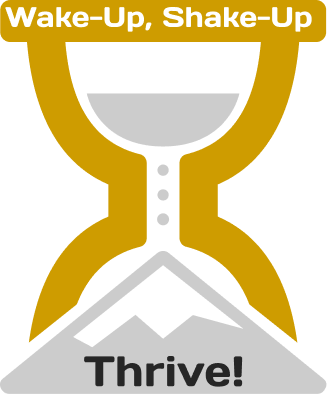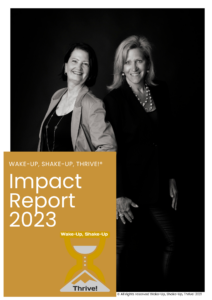Wake-Up!
Artificial intelligence or “AI.” What an odd name.
Is it truly “artificial” — as opposed to “reality”? Is it truly “intelligent” — as opposed to “dumb”? Either way. AI is omnipresent, and we encounter it daily, consciously, or not. So, here are a few things we think are “dumb realities” (DR) about AI that are noteworthy this week.
- DR #1: Recent research on the perceptions of AI follows a clear pattern, showing that older individuals are more fearful of the disruptions AI might bring, while younger ones are relatively excited about its usefulness. We find this dumb because we believe disruptions and change are triggers to staying relevant as we age.
- DR #2: 63% of daily AI interactions come from the 26 to 35 year age group, while only 1% comes from the age 50+! We find this dumb because older people should be having just as many AI interactions as younger. AI can be a game-changer for older individuals with their most current preoccupations from managing finances to health, and beyond.
- DR #3: 70% of baby boomers believe that AI will put jobs at risk, compared to 63% of Gen X and 57% of Millennials and younger. We find this dumb because it shows a closed mindset, rather than the curiosity that nurtures the human spirit.
- DR #4: A recent US voter poll showed that 58% of people over age 45 are “unfamiliar” with AI technology — like ChatGPT — compared to 35% of those under age 45. We find this dumb because Staying “unfamiliar” means fitting into the “OK boomer” cliché. Who wants that?
- DR #5: According to the Head of Demographics and Healthy Ageing at the WHO, the implicit and explicit biases of society, including around age, are often replicated in AI which can perpetuate existing ageism in society. We find this dumb because we all need to recognize ageism and take action to prevent it.
Shake-Up!
Using AI is a personal choice and finding the right balance that suits your comfort level, lifestyle, and pace is key. Take the time to understand its benefits, implications, and how it aligns with your needs and values.
- 1. Be open-minded. Be open to learning more about AI. Awareness and knowledge are always better than preconceived ideas to make good decisions.
- 2. Stay Relevant. Explore AI potential applications and benefits in various aspects of life so that your knowledge doesn’t become obsolete. This can also help you use AI for what it is — a tool — and fully leverage its capabilities.
- 3. Go Slow. Begin with user-friendly AI technologies that are designed with simplicity in mind and then gradually familiarize yourself with virtual assistants, smart home devices, or AI-driven applications that can enhance convenience and improve daily routines.
- 4. Get Help. Don’t hesitate to seek support when using AI technologies. Reach out to family members, friends, or tech-savvy co-workers who can provide you with the support to help you navigate AI.
- 5. Be Critical. Develop critical thinking skills to evaluate the reliability and accuracy of information generated by AI systems — especially around age bias. Think about cross-referencing information from multiple sources and verifying facts.
- 6. Get Informed. Check out recent research, such as the WHO policy brief Ageism in artificial intelligence for health, which highlights the design of AI technologies by and with older people to ensure that ageism is identified and eliminated from AI design.
Thrive!
A fun place to start is with “AI to Z: all the terms you need to know to keep up in the AI hype age » (PS We really liked discovering the term “sentiment analysis” — do you know what that is?)



